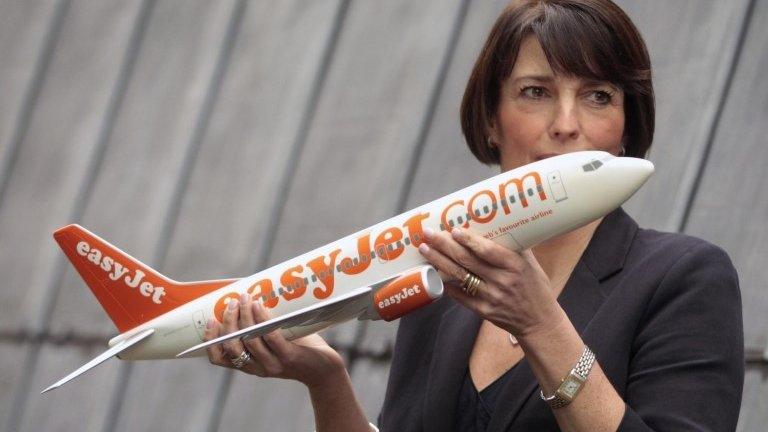Easyjet profits tumble after year of 'challenges'
- Published
- comments
Easyjet CEO, Carolyn McCall, speaks to Radio 4's Today programme
Easyjet's profits have tumbled during what the airline described as a year of "significant challenges".
Pre-tax profits, external in the year to 30 September fell 27.9% to £495m, but it was in line with a warning given last month. Passenger numbers rose 6.6%.
Sterling's weakness, the impact on air travel of terror attacks, and air traffic control strikes hit trade.
Easyjet also confirmed it is setting up a continental-based airline ahead of the UK's exit from the EU.
'Resilient performance'
Although passenger numbers rose 6.6% to 73.1 million, revenues fell 0.4% to £4.67bn as the airline cut fares.
Easyjet's chief executive, Carolyn McCall, told the BBC that the rise in passengers and an increase in the load factor - the airline's ability to fill seats - showed that there was no lack of demand.
But the carrier had suffered a series of "external shocks", she said. These included the impact on air travel of terror attacks across Europe, Egypt and Tunisia, air traffic control strikes in France and political turmoil in Turkey.
The airline has also been hit by sterling's sharp depreciation since the Brexit referendum. In the face of these issues, "EasyJet achieved a resilient performance," she said.
Ms McCall also confirmed that Easyjet is in the process of setting up a separate airline based on the European mainland, in readiness for when the UK leaves the EU.
Current EU flying rights might have to be renegotiated and the new company would ensure Easyjet could operate within the EU.
She said: "We are not saying there will be no agreement. We just don't know the shape or form. We don't have the luxury of waiting. But we have to take control of our own future."
There was no question of job cuts or moving from the current headquarters at Luton, she said. It was about registering aircraft and "securing flying rights".

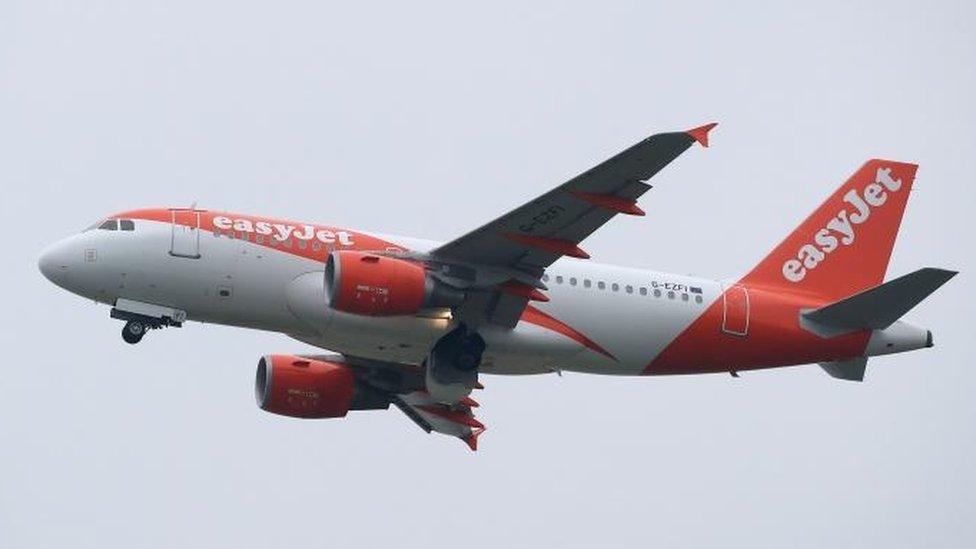
Analysis: Dominic O'Connell, Today business presenter
Easyjet has built its success on flights from the UK to Europe, and now the company is poised to make a trip of its own to the Continent. To get round the regulatory complications of Britain's Brexit vote, it has to set up an organisation majority-owned and controlled by nationals and organisations inside the European Union.
Many had thought it would set up a subsidiary - it already has a Swiss subsidiary to deal with a similar route-rights complication - but instead Easyjet itself will become the entity inside the union. The British airline will become the subsidiary, with the existing UK airline operating certificate ring-fenced, so that it remains majority-owned by British shareholders.
While it may look a radical shift, in practice it is dictated by expediency. Easyjet's largest shareholder remains Stelios Haji-Ioannou and members of his family are Greek nationals, so meeting the shareholder threshold in Europe is simple. And the FTSE 100 company will be retain its London listing and Luton headquarters.

EasyJet has bases across 11 UK airports and flies more than 830 routes on its network across Europe, the Middle East and North Africa.
The airline also said it was planning a group-wide review over the next year to make it a "simpler, more efficient" company and to deliver "meaningful" savings.
Easyjet shares, down 42% over the past year, were 5% up at midday.
Richard Hunter, head of research at Wilson King Investment Management, said the results showed the airline "is clearly running hard to stand still".
"But the market's reaction to the numbers in early trade shows some grounds for optimism," he added.
- Published7 November 2016
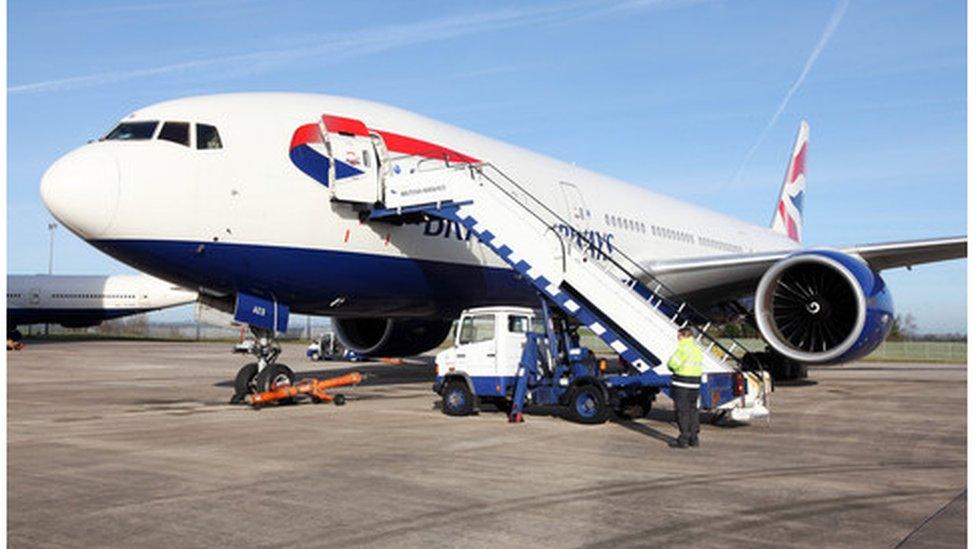
- Published6 October 2016
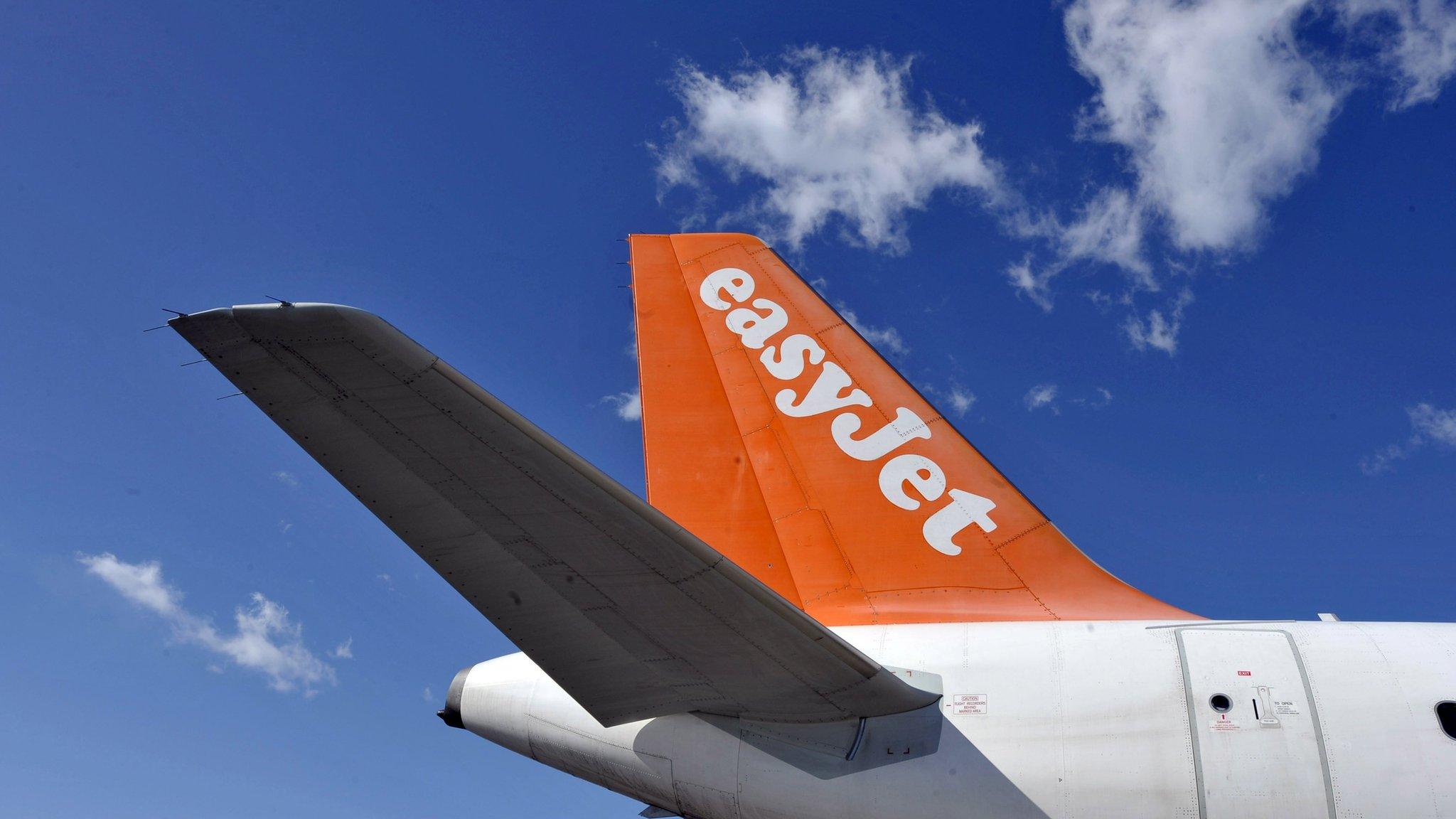
- Published18 October 2016
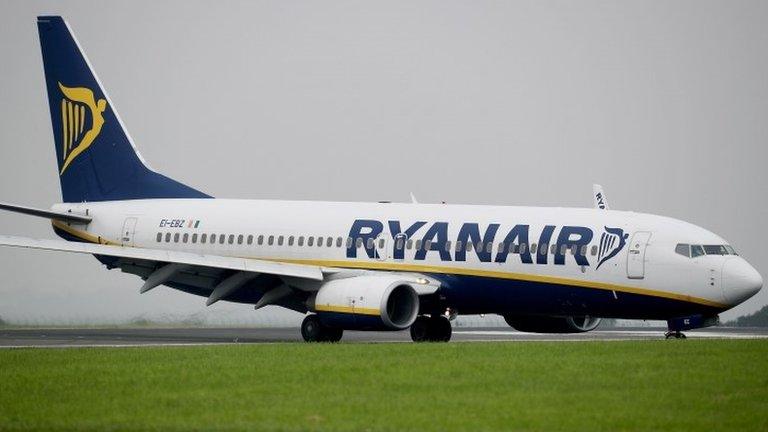
- Published21 July 2016
